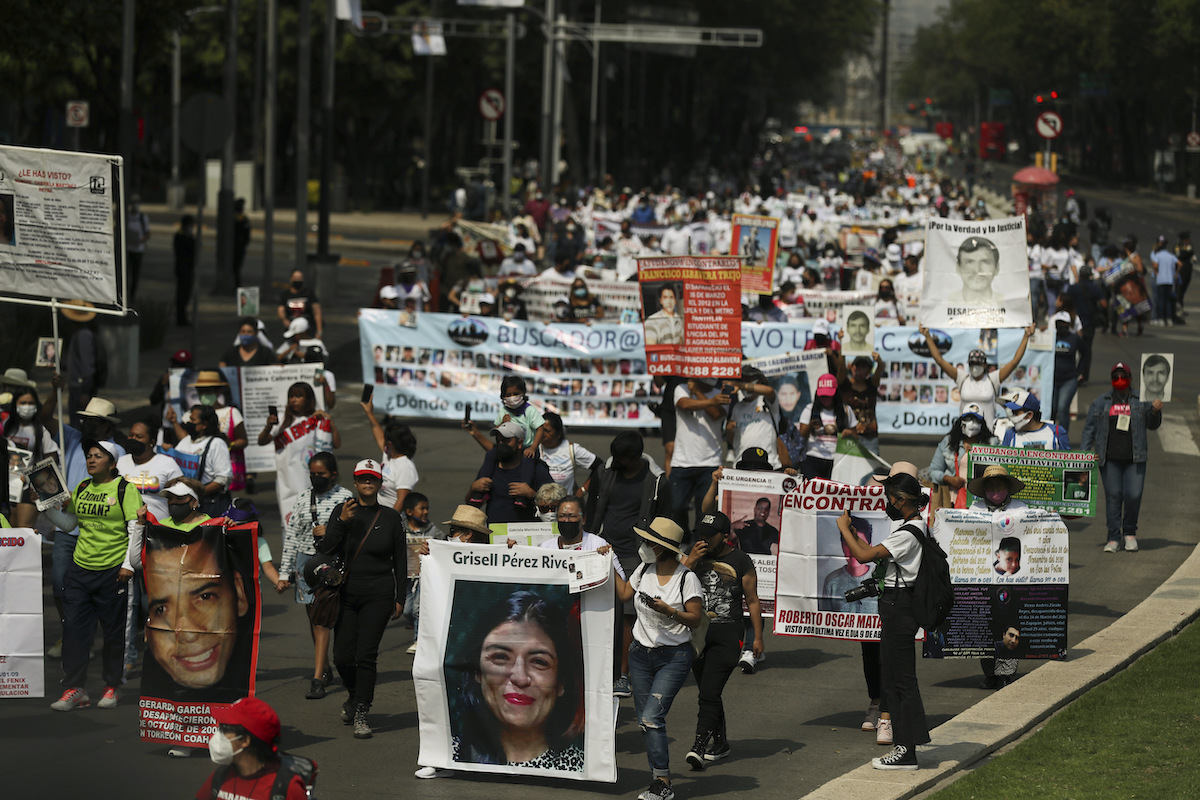

People carry photographs during a march in remembrance of those who have disappeared, on Mother’s Day in Mexico City, Monday, May 10, 2021. (AP Photo/Fernando Llano)
Participants chanted slogans like “Where are our children, where are they?” and “Child, listen, your mother is searching for you.”
The march occurs annually on May 10, which is Mothers Day in Mexico. The government says that over 80,000 people have disappeared in Mexico since the country’s drug war began in 2006.
Interior Secretary Olga Sánchez met with some of the mothers early Monday, and her office said she “repeated the government’s desire to find out the location of their relatives.”
But such promises have rung hollow in the past.
Martha Estela Arana, from the northern border state of Chihuahua, has spent the last 11 years searching for her son, Alfredo Quesada Arana. She hasn’t gotten any firm information in all those years.
“It has been a pilgrimage, searching, searching and searching for justice,” Arana said. “Administrations come and go, and it’s always the same. And we will continue searching, searching for them, to the last breath in my body.”
But this year it was not just mothers. The problem has gone on so long —and so many people are believed to have wound up in clandestine graves— that now some children have grown up and are searching for their disappeared parents.
Maricarmen Cardona, now 23, began accompanying her mother at marches when she was about 11 demanding authorities find her father, who disappeared along with a dozen other people in the northern border city of Piedras Negras in 2009.
“It was what we did together,” Cardona said of her mother. “She died in 2016 and never got any answer about where my father was.”
Many of the disappeared were abducted and presumably killed by drug cartels or kidnapping gangs, but authorities and police are suspected in some cases.


